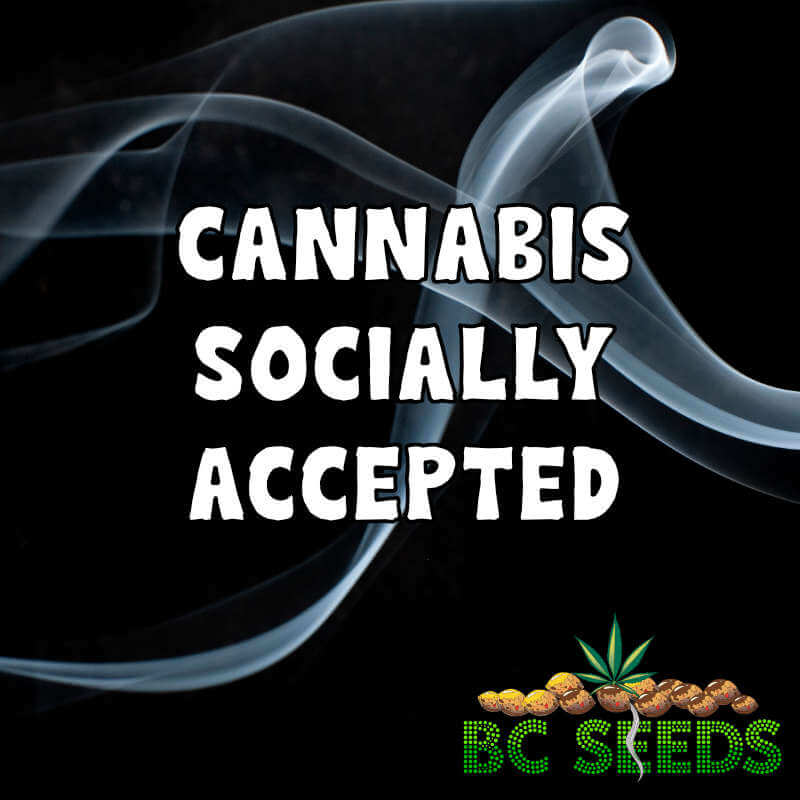Cannabis Socially Accepted

Cannabis socially accepted in 2024. The acceptance of cannabis marks a significant societal shift. Formerly stigmatized and illegal, cannabis is now widely embraced, thanks to changing attitudes, scientific advancements, and legalization efforts.
The Changing Landscape of Cannabis Perception
Over recent decades, attitudes towards cannabis have markedly shifted. Once viewed as a dangerous substance, it is now increasingly seen as a valuable resource with diverse potential applications. This change can be attributed to various factors, including expanded scientific research and a deeper understanding of its benefits.Groups Not in Favour of Cannabis
Certain groups, such as conservative or religious organizations, law enforcement and anti-drug groups, and some segments of the medical community, remain less accepting of cannabis use. Conservative and religious groups often cite moral or cultural beliefs in their opposition, while law enforcement and anti-drug organizations focus on the drug’s legal status and perceived negative effects.Medical and Safety Concerns
Some medical professionals are cautious due to concerns about health risks and the lack of standardized dosing. Additionally, employers and workplace safety advocates may oppose cannabis use due to concerns about impairment and safety, particularly in safety-sensitive industries. Parenting and educational groups also express concerns about the impact of cannabis on youth, advocating for stricter regulations and prevention efforts. Despite these reservations, attitudes towards cannabis are evolving, with increasing acceptance and legalization in many regions. Groups that are generally less accepting of cannabis include: Conservative or Religious Groups: Some conservative or religious groups may oppose cannabis use due to moral or cultural beliefs. Law Enforcement and Anti-Drug Organizations: Organizations focused on drug enforcement or anti-drug campaigns often advocate against cannabis use due to its legal status and perceived negative effects. Certain Medical Communities: While attitudes are changing, some medical professionals may still be cautious about endorsing cannabis due to concerns about potential health risks and lack of standardized dosing and administration methods. Employers and Workplace Safety Advocates: Due to concerns about impairment and workplace safety, some employers and workplace safety advocates may be opposed to cannabis use, particularly in safety-sensitive industries. Some Parenting and Educational Groups: Groups focused on parenting and education may have concerns about the impact of cannabis on youth and may advocate for stricter regulations and prevention efforts. It’s important to note that attitudes towards cannabis vary widely. Individuals and groups are for or against. Moreover, there’s a growing trend towards acceptance and legalization in many parts of the world.The Role of Legalization in Shaping Perception
The legalization of cannabis for medical and recreational use in numerous jurisdictions has played a pivotal role in reshaping public perception. Accessibility has increased and regulations implemented. Cannabis has transitioned from a taboo substance to a beneficial product and revenue source.Scientific Advancements and Research
Scientific research has significantly influenced the changing perceptions of cannabis. Studies have highlighted the therapeutic potential of cannabinoids like THC and CBD, showing benefits such as pain relief and anxiety reduction. Continued research is expanding our knowledge and bolstering acceptance.Economic and Social Impact of Cannabis Legalization
The legalization of cannabis has not only created jobs and generated tax revenue but has also stimulated economic growth in related industries. Additionally, it has provided funding for social programs, showcasing the broader impact of cannabis acceptance.Education and Awareness Campaigns
Education campaigns have played a crucial role in dispelling myths and promoting factual information about cannabis. These efforts have contributed to a more balanced view and increased understanding of its potential benefits.Cultural Shift and Normalization of Cannabis Use
A notable cultural shift towards normalizing cannabis use has occurred, particularly in popular culture. Portrayals of cannabis use as a routine activity have helped reduce stigma and enhance social acceptance.Embracing a New Era of Cannabis Acceptance
Cannabis socially accepted in 2024 represents a significant cultural and legal shift. Cannabis has evolved into a widely accepted and celebrated plant. It possesses therapeutic benefits. Attitudes continue to evolve positively as cannabis socially accepted worlwide. Cannabis is becoming more integrated into mainstream society. It’s shaping the future of medicine, industry, and culture. The journey towards total cannabis social acceptance is almost complete. It has been marked by challenges and victories. Moreover, it’s clear that the tide has turned in favor of this once-controversial plant. With continued education, research, and responsible regulation, the future of cannabis looks promising. It offers new possibilities for your health, economy, and society at large.Mr. BC Seeds
Mr. BC Seeds is an over educated old school hippy who has been involved in the cannabis industry since the 1970's. He is one of the most experienced marijuana breeders in Canada if not the entire world. He was the first to use the most advanced breeding techniques in 2008 to create 42 of the world's strongest cannabis strains. He has been writing in-depth articles about cannabis in Canada for decades and looks forward to continue bringing you cutting edge cannabis strains for the decades to come. Mr. BC Seeds uses a "pen name" because he still travels the world collecting cannabis strains and continues researching cannabis in laboratories of non-legalized countries.
Posted in Cannabis and tagged Cannabis Acceptance

Leave a Comment